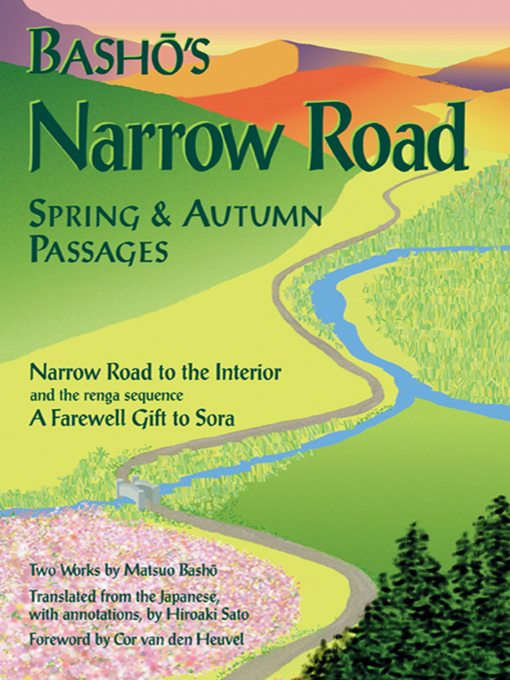A stimulating exploration of the haiku masterpiece.
Matsuo Basho (1644-94) is considered Japan's greatest haiku poet. Narrow Road to the Interior (Oku no Hosomichi) is his masterpiece. Ostensibly a chronological account of the poet's five-month journey in 1689 into the deep country north and west of the old capital, Edo, the work is in fact artful and carefully sculpted, rich in literary and Zen allusion and filled with great insights and vital rhythms.
In Basho's Narrow Road: Spring and Autumn Passages, poet and translator Hiroaki Sato presents the complete work in English and examines the threads of history, geography, philosophy, and literature that are woven into Basho's exposition. He details in particular the extent to which Basho relied on the community of writers with whom he traveled and joined in linked verse (renga) poetry sessions, an example of which, A Farewell Gift to Sora, is included in this volume.
In explaining how and why Basho made the literary choices he did, Sato shows how the poet was able to transform his passing observations into words that resonate across time and culture.
